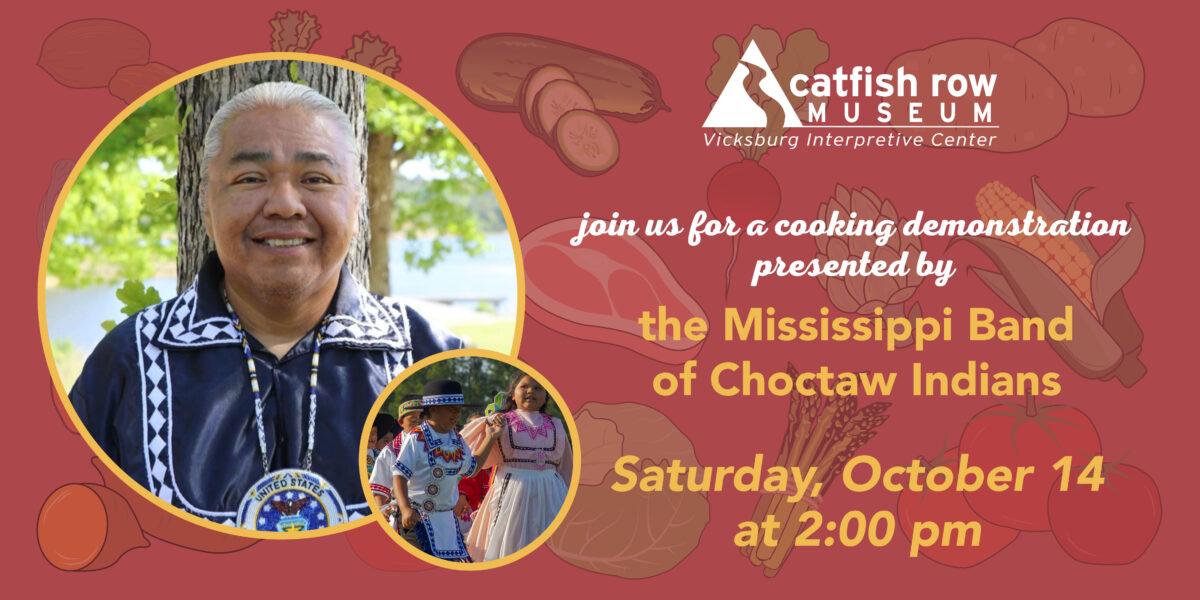The program, scheduled for Oct. 14, will feature tribal dancers and more
Native American cultures have contributed to many customs that are ingrained in our broader regional and national identities, and perhaps none more than our culinary tastes. They not only introduced Europeans to a trinity of core ingredients—corn, beans and squash—that are still staples today, but they also passed on flavorings such as hot pepper sauces and even had a hand in inventing gumbo.
But the main ingredient in Choctaw cuisine, according to tribal knowledge keeper William “Dan” Isaac, isn’t something anyone can simply measure and spoon into a dish. In his culture, the act of preparing food is as much a spiritual exercise as a means to sustain life.
“Everything you do in the physical world, whether you’re making arts and crafts or preparing food, your spiritual energy has to be balanced while you’re doing these things,” he says. “So, when the food comes out prepared and a person takes it in, it has positive spiritual force, energy or power, or however you perceive it. But we call it spiritual energy.”
On October 14 at 2 p.m., Isaac and other members of the Mississippi Band of Choctaw Indians will convene at Catfish Row Museum to close out its 2023 Summer Cooking Series with a vibrant demonstration of Choctaw cooking and culture.
Joining Isaac will be the Mystic Wind Social Dancers, one of the Choctaws’ more than 50 tribal dancing groups, as well as his daughter, Annie Isaac, who is currently a culinary student at East Central Community College. Together, the Isaacs will prepare two cornerstone Choctaw dishes—corn hominy, made by pounding dried kernels and then simmering in water along with meat for flavoring, and banaha, a creation wrapped in corn husks, similar to the tamales made in the Mississippi Delta and elsewhere.
Banaha can contain a variety of ingredients, Isaac says, and simplicity is key. The dish typically contains a mixture of corn meal and either cooked beans or field peas, and traditionally was served with salt pork. In modern times, some type of meat or poultry is added according to preference.
“It was a common meal that you would eat almost every day,” he says, “[but] then people went with more contemporary food. The elders are now saying, ‘Hey, we can’t lose all this rich culture we have.’ So, we’re bringing back a lot of it, especially in our family. We try to do things like that to remember all the foods, or all the words and language and customs, that have kind of been forgotten.”
While the Choctaw tribe has modernized many of its practices and runs amenities such as the Dancing Rabbit Golf Club and the Pearl River Resort, which includes the Golden Moon Hotel and Casino, Silver Star Hotel and Casino, and Geyser Falls Water Park, a movement is underway to preserve its cultural traditions.
“Modern society is more about physical things that you can see, things that you can observe, where to talk about culture is more about spirituality, things that are unseen with the naked eye and cannot be felt or touched physically in our world,” Isaac says. “Some of the challenge is to remember that there is a spiritual world along with the physical world. Sometimes modern society forgets about the spiritual.”

